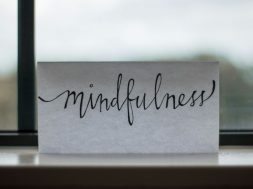Humility Hasn’t Always Been a Virtue. Here’s How its Meaning Changed
By: Sheridan Voysey
They may have no more authority than a scribbled-on napkin, but I get a kick out of unofficial holidays. This month alone has a Sticky Bun Day, a Sword Swallowers Day, and even an International Dog Biscuit Appreciation Day!
In this unofficial calendar of festivities February 22 was Be Humble Day—24-hours to banish boasting, swallow pride and eat humble pie.
In self-effacing fashion, we don’t know who started Be Humble Day. A check of its hashtag finds tweets about learning from others and not tooting our own horns—all good advice. No one likes arrogance. Along with kindness and generosity, humility may be our most-cited quality of a good person. All this is fascinating when you consider that humility hasn’t always been a virtue.
How Humility Became a Virtue
As historians like John Dickson tell us, the ancient world considered humility a weakness. Whether you were rich or poor, what you prized instead was honour—having your merits recognised and your name praised. Boasting about your achievements was expected in the Greco-Roman world, and one never humbled themselves to others as that would sacrifice your well-earned status. Humility was something for children and slaves, not honourable men and women.
All this changed in AD33 when an innocent man believed to be the Son of God submitted to the most humiliating act the Romans could concoct—crucifixion. Jesus relinquished his divine status, Christians believed, dying not for himself but for us—which left onlookers with a dilemma: either Jesus wasn’t worthy of honour, or their definition of humility had to change. The definition changed and today you and I see humility not as a weakness but as a virtue.
Above: John Dickson talks about Humility
What Humility Means
If humility is relinquishing our power and status for others, Be Humble Day could be the most revolutionary of unofficial holidays. At the least, it could mean withholding a judgemental tweet because we don’t know all the facts, or listening carefully to those who think or vote differently to us. It could mean publicising a colleague’s achievements instead of our own, or even letting a promotion go to someone else. It could mean laying off the selfies, relinquishing the desire to always be centre-screen, and at its most radical, even laying down one’s life for another. It certainly includes that most personal of humilities—relinquishing control of our life to God, who rightly owns it.
Be Humble Day may be more demanding than its founder imagined—less sticky bun, more swallowing swords. As unofficial as it is, I want to try taking up its challenge of putting myself second and others first.
Article supplied with thanks to Sheridan Voysey.
About the Author: About the Author: Sheridan Voysey is an author and broadcaster on faith and spirituality. His latest book is called Reflect with Sheridan. Download his FREE inspirational printable The Creed here.
Feature image: Unsplash











